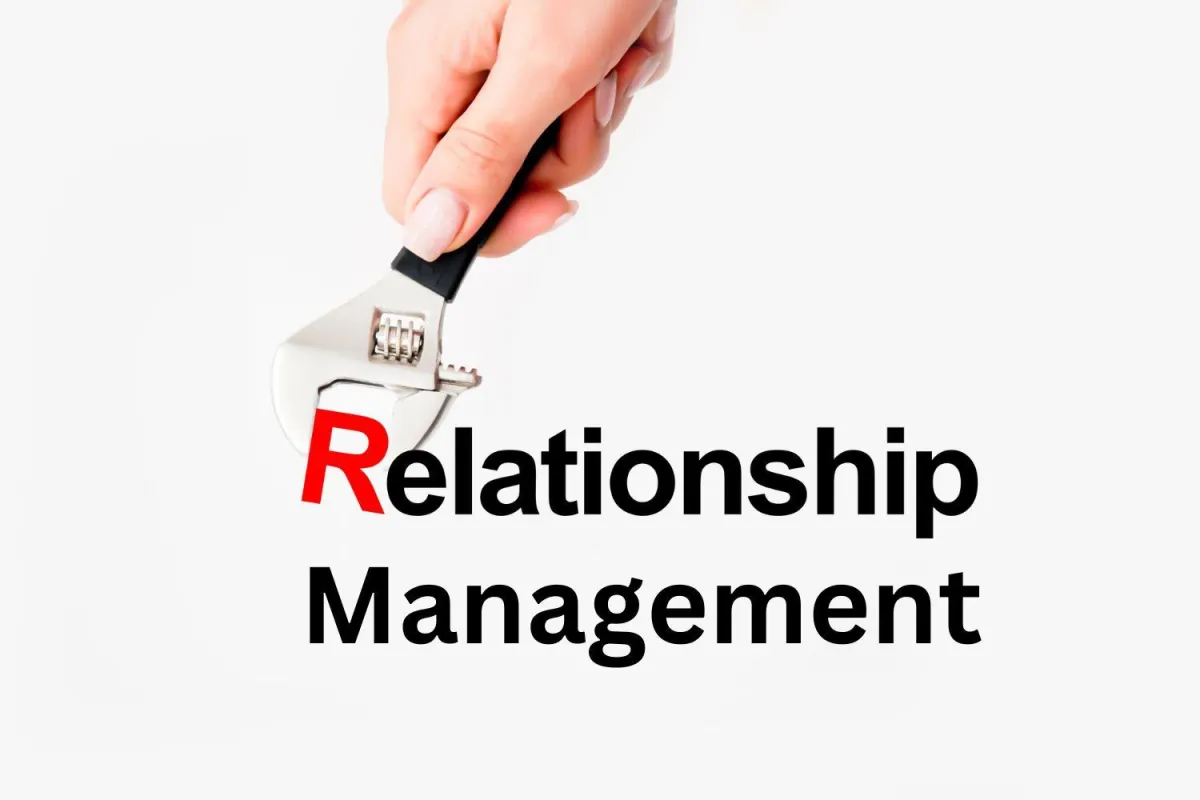
8 Dimensions of Wellness
Blog My Journey
All Dimensions of Wellness

Building Bridges: Relationship Management with Emotional Intelligence in the Workplace
Introduction
Access Amazon Kindle and Paperback
As you enter this insightful chapter on "Relationship Management with Emotional Intelligence," you will learn how to make important connections and keep relationships healthy at work. Relationship management is an important part of emotional intelligence. It means being able to make friends and keep them friendly. This is a useful skill that employers in all fields want to see.
In today's fast-paced business world, having great people skills goes beyond standard measures of success. This chapter goes into detail about how good communication can help people and teams do their best. Good "people skills" are more than just being able to get along with others. When you hire people with these skills, you get team players who are also great at having conversations, communicating clearly, and coaching others to be their best.
As we talk about the details of managing relationships, this chapter sets the stage for what we will talk about next. Learn about the ins and outs of how to communicate effectively, get the best out of people, motivate them, and persuade them at work. We will learn together how emotional intelligence is the key that allows people to handle working relationships with grace and have a positive effect on how their team works together.
Learning how combining emotional intelligence with relationship management skills can completely change the way you work creates an environment where people love to collaborate, talk, and be positively engaged.
Effective Communication
Emotional intelligence and good relationships depend on being able to talk to each other clearly. There are many ways to communicate, and if we want to keep good relationships, our methods of communication need to show our message in the most useful way. Without talking to each other, interactions can't work. People don't really understand or trust each other.
Effective communication means sending strong messages and making sure that your body language backs up what you say. Active listening skills are also needed so that both people's messages are heard. Asking questions and using body language are both parts of active hearing.
Bringing Out the Best
Being a good role model at work is a great way to get other people to do their best. Being a guide to other people is a good way to do this. Setting a good example and being emotionally intelligent are the most important things. By getting to know people and having them spend time with you, they will start to act like you. When there is happiness around, it's hard to be negative. For the most part, you show your coworkers how to be upbeat and successful by doing it yourself.
Look for the good in everyone. This is a lot easier to do because we are emotionally intelligent. Go out of your way to support and compliment other people. When you give happiness, you often get it back.
Motivating
A pat on the back for a job well done is fun for everyone. The "push" that gets us to reach our goals is what motivates us, and praise can be that push. Sometimes we can find skills and gifts in our coworkers that they didn't even know they had. Praising people when it's due inspires them to keep doing well on their tasks and goals. If you know how to do it right, motivating people can be very successful. But the praise must be real and true. Praise that isn't needed sends a message of aggression or lowliness. It also makes us look dishonest and unreliable when we give fake compliments, but genuine compliments can drive others to do their best.
Influencing
Power can come from a lot of different places. Emotional intelligence, also known as people skills or person power, is one of these sources. This influence is based on how trustworthy and good-hearted other people think we are. It starts with our people skills and grows into the ability to lead and affect others.
The keys to influencing others are:
· Active listening
· A genuine interest in others
· Adept at reading others’ non-verbal communication
· Easily builds rapport with others.
Conclusion
In conclusion, the information presented in this chapter has provided a solid basis for understanding the significant role that emotional intelligence plays in the management of relationships within any given workplace. One of the most important skills that employers look for in potential employees is the ability to establish and maintain strong interactions with others. As we investigated the value of successful communication and having excellent "soft skills," we got a peek of the more far-reaching impact that emotional intelligence has on the performance of both individuals and teams. We will be discussing effective communication, bringing out the best in others, motivating, and influencing in the workplace in the next chapters, and this chapter will serve as a gateway to those talks. Together, we set out on a journey to discover the transformational power of emotional intelligence in the process of cultivating healthy relationships and developing a culture in the workplace that lives on collaboration and positive participation.





